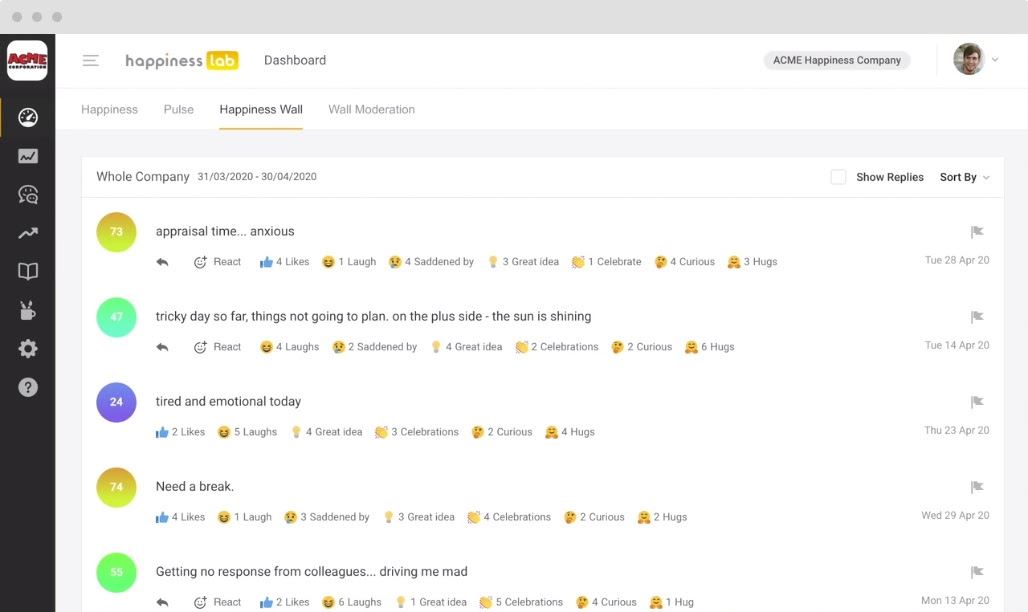“Are you team-oriented?”
The moment the question leaves your lips, you know you made a mistake. It’s a closed question. One with an obvious answer considering the job ad asked for team orientation.
And indeed, the answer flows quickly and confidently: “Sure.”
“So, tell me about a time you feel shows best that you’re a team player?”
Your recovery is pretty good. But you also know what kind of answer you’ll get. It’ll be an example of how your interviewee showed one of the most commonly listed team-oriented skills.
You know these skills are crucial, but you also know that hiring people with those skills is not enough to create tight-knit high-performing teams. Because that’s what you’ve been doing and yet team performance mostly seems a hit and miss game.
If only you could figure out what’s missing.
Because you need people collaborating closely in their teams to come up with better solutions faster. That’s why you want to give your people what they need to gel as a team, and you want to do it consistently.
Well, you can. Just read on. You’ll learn what it takes beyond having the usual skills to actually practising them.
But, just in case, let’s start with the basics.

Photo by ThisisEngineering RAEng on Unsplash
What Is Team-Oriented?
Put succinctly, being team-oriented means focusing on your teammates more than on yourself.
- You work well with others and enjoy it.
- You put the needs of the team ahead of your own, while still taking care of yourself.
- You do whatever you can to achieve the goals of the team, without losing sight of your own.
Being team-oriented, or having team orientation, is a skill. It’s not a matter of “you have it, or you don’t.” Sure, some people are more naturally inclined to teamwork. But you can train it and get better at it. And come to enjoy it.
It’s my theory that, barring rare exceptions, everyone enjoys being part of something bigger and collaborating to achieve a common goal. Even if you’re an introvert! As an introvert, you just need enough alone time to recharge.
Team-oriented is a skill, but it’s not singular. It’s multi-faceted as good teamwork takes several interpersonal skills.
Let’s see what they are.

Photo by Nick Fewings on Unsplash
The 5 Skills of a Team-Oriented Person
Good teamwork stands or falls with good collaboration.
Collaboration isn’t just co-operation. Collaboration means working together on a single task and acknowledging and making the most of each other’s unique knowledge, skills, and experience.
Good collaboration leads to better results faster than working separately and reviewing one or more times. Not to mention the fact that reviews tend to be a source of contention, friction, and ill-will.
Good teamwork doesn’t mean you collaborate with the whole team 100% of the time. You also work alone, or in smaller groups, and come back to the entire team to present results and align on the next steps.
To do this well and enjoy it too, you:
- communicate clearly
You’re able to put your ideas into words in a way that makes it easy for others to follow your thinking. You show patience when someone doesn’t understand you immediately or asks questions to which the answer seems obvious to you.
- listen respectfully
You take the time to hear what others have to say. You ask questions to clarify your understanding and clear up any ambiguities. You acknowledge their point of view. When you disagree with it, you express yours calmly and clearly.
- perform reliably
You do what you say you’ll do. You don’t over promise — you don’t take on more than you can handle. You’re aware of your abilities and limitations and ask for help when you need it. You balance priorities and ask for guidance if they’re not clear.
- negotiate conflict deftly
You accept differences of opinion as a fact of life. You work to come to an agreement that everyone involved can support. When you have doubts about a team decision but don’t have a better idea, you accept it without continuing to push an idea that didn’t make it.
- meet challenges proactively
When you or the team can’t progress on your goals, you take steps to remedy the situation for as far as that is within your and the team’s control. You seek help to remove obstacles that are outside of your control or sphere of influence. You try to find workarounds for them, but when these prove impossible or impractical, you accept what is until something changes the landscape.
That’s quite a lot to take on. So why bother? Why is it essential to develop and improve your team-oriented skills?
Let’s have a look.
Why Is It Important to Be Team-Oriented?
Employers know that collaboration in a team brings them better solutions faster.
They also know that collaboration is another word for teamwork and that this requires having team-oriented people on their teams.
It means that being team-oriented increases your chances of getting a job.
The fun flip-side is that if a job requires you to be team-oriented, you stand a good chance of an enjoyable work environment.
Generally speaking, team-oriented workplaces know the value of teamwork and actively strive to create the circumstances that’ll give them the benefits. So you get an environment that values your ideas and where you get to contribute to solving problems. Where you support your teammates, and they help you. And where morale tends to be higher.
How awesome is that?
There’s just one glitch. There’s no guarantee that someone with team-oriented skills will use them.
Let’s see why that is.

Photo by cheng feng on Unsplash
Why Is Hiring for Team-Oriented Skills Not Enough to Create a Real Team?
You’d think that bringing together a group of individuals, all with good team-oriented skills would be enough to create a well-oiled team.
You’d expect that they’d move through the phases of forming, storming and norming to performing.
Yet you, and many with you, have experienced teams that never went past storming.
Teams, or rather groups, that worked under the same leader and on the same product or service, but that never gelled. Where every team member pretty much kept to their own work. Sure, they’d help you when asked, but went back to their own as soon as possible. That cooperation hardly ever grew into collaborative problem-solving.
Why is that? Why does that happen?
What keeps a group of people from using their skills and becoming a real, high performing, team?
Let’s answer that by looking at what it takes to move from cooperation to real collaboration and teamwork.

Photo by Jason Rosewell on https://unsplash.com
C'est Le Ton Qui Fait la Musique
Real collaboration and teamwork are characterized by more than the mechanics of working together on a single task. Way more important is how you work together — what everyone’s basic attitude is toward each other.
How you approach your teammates, how you make them feel, makes an enormous difference.
They may forget what you said — but they will never forget how you made them feel.
- Carl W. Buehner
How you make your teammates feel sets the tone for all work in a team: “c'est le ton qui fait la musique.”
Outstanding team players excel at hitting the right tone with everyone because they:
- embrace differences in personalities and cognitive styles,
- care about and hold space for their teammates,
- feel comfortable letting their teammates shine,
- share goals, mood, and progress freely,
- enjoy collaborating on tasks and are reliable when performing a task alone,
- commit to a common goal and plan, and
- hold their teammates to the same without judgment, shaming or blaming.
That last part is essential!
Any judgment, shaming or blaming torpedoes the atmosphere and collaboration in a team faster than the speed of light!
But let’s get back to the question at hand. Why is it that a group of people, all with the necessary basic skills to work well in a team, have such a hard time adopting the behaviour of excellent team players?
Showing up and Being Seen the Brené Brown Way
That’s because behaving the way an outstanding team player does, takes a lot more than showing up and being seen to attend. It takes showing up and being seen, in the way that Brené Brown talks about: as your genuine self, warts and all, and to keep doing it even when you regularly fall flat on your face.
And that’s scary.
There’s, like Brené Brown says, only one guarantee when you commit to showing up and being seen: you will get your ass kicked. You will fall and stumble. You will have to get up, dust yourself off, and do it again.
The good news is you can develop the skills that’ll help you crush team-oriented behaviour.
And as a leader, you can do a lot to encourage and help your team members to develop those skills through modelling and judgment-free feedback.
But, first, let’s have a look at the essential skills you need to show up and be seen.
10 Skills to Dial up Your Team-Oriented Behaviour
1. Vulnerability
To collaborate in a team, you need to be able
- to ask for help,
- to say you don’t know and need to find out,
- to admit you were wrong,
- to have your work reviewed,
- to say ‘no’,
- to express your opinion,
- etc.
These are all actions that make you vulnerable to the words and actions of your colleagues. A daunting proposition for many. Because vulnerability literally means the ability to be wounded, injured, or harmed.
No wonder it’s hard to collaborate.
It’s why collaboration takes trust.
2. Trust and Trustworthiness: A Two-Way Street
Trust is the willingness to be vulnerable, to open yourself up to your colleagues’ opinion — good or bad. And to rely on them, to work with their results.
Trust goes both ways. You need to trust them. They need to trust you.
The most important thing to understand about trust and trustworthiness is that they’re dynamic. They ebb and flow continuously with every interaction you have and witness.
That’s why trust is so easily upset when new people join a team or the environment around it changes.
It’s also why growing trust in a team takes continuous and deliberate attention to trustworthiness — behaving in a trustworthy manner. You can learn what that takes, what trust is really made of, in Brené Brown’s discussion of the Anatomy of Trust.
https://brenebrown.com/videos/anatomy-trust-video/
3. Courage
As trust is the willingness to be vulnerable, you need courage. And a lot of it.
That’s because even when no one deliberately sets out to hurt you, you will experience instances when your colleagues’ opinions or actions feel stunningly painful.
And while physical pain lasts only as long as it takes the physical wound to heal, emotional distress, as it’s often left unattended, can last a lifetime.
To grow your courage, it helps to boost your self-trust.
4. Self-Trust
The courage to trust starts with self-trust — knowing that you have your own back, that when it comes down to it, you can rely on yourself to take care of yourself.
Self-trust enables you to show up and be seen because you know that should you come to harm, you can heal yourself. You can get up, dust yourself off, and risk being vulnerable again.
5. Self-Leadership
Self-leadership is having clarity about what you want to achieve, what you want to learn, and what skills you want to develop.
Letting your fellow team members know what you’re working on makes it easier to ask for their support. And that’ll make them more inclined to give you the benefit of the doubt when you trip up. As you no doubt will. And that’s okay because all learning and practice come with trial and error.
6. Emotional Intelligence
Leaving your emotions at the door as many would have you do to call you professional, is an impossibility.
You’re human. That means you’re an emotional being. You can ignore your emotions, but you can’t avoid having them.
The fun thing is that your emotions, even the difficult ones, are not just troublesome. They’re a rich source of information.
For example, when someone’s behaviour has you up in arms, it tells you that what this person did is not in line with your values. You can use that information to figure out what value they trampled on and whether you want to take it up with them. A much better option than letting your emotion take over and getting you in much hotter water than necessary.
Being able to monitor your own and other people’s emotions, to discriminate between different feelings and identify them, and then to use that information to guide your thinking and behaviour, is called emotional intelligence.
It allows you to function as a solid team player that can respond rather than react. And that’ll let you more easily avoid behaviours that kill trust, such as judging, shaming and blaming.

Photo by Unsplash
7. Emotional Maturity
Emotional maturity takes emotional intelligence a step further. As an emotionally mature person, you won’t get stuck in a difficult emotion. You can identify it and then just sit with it, knowing it will pass.
And that only takes between 60-90 seconds!
You may not believe this if you’ve ever had a crying fit, or were angry for days about someone slighting you.
But it still holds. It’s just that in these long spells of difficult emotions, you kept reigniting them by continuing to think about what made you cry or angry.
Sometimes it’s what you need to get it out of your system. And that’s ok.
But you need to let your emotion go if you want to act effectively. For example, to set a boundary without putting oil on the fire.
8. Small, Strong Ego
Functioning well in a team is hard when you have a big ego — when your accomplishments define your identity.
What you want to be a dependable team-oriented worker is a small, strong ego. One that’s safe when things go awry. One that enables you to roll with the punches, to adapt and keep moving.
A small, strong ego is a sign of mental strength. If you want to improve it, check out the book “13 Things Mentally Strong People Don't Do: Take Back Your Power, Embrace Change, Face Your Fears, and Train Your Brain for Happiness and Success.”

Photo by Clay Banks on Unsplash
9. Respect
I’m going to let William Ury speak on this one.
“Respect is essentially a yes to others, not to their demands, but rather to their basic humanity. In this sense, respect is indivisible. When we give respect to others, we are honouring the very same humanity that exists in us. When we acknowledge the dignity of others, we are acknowledging our own dignity. We cannot truly respect others without respecting ourselves at the same time.”
- William Ury, Getting to Yes with Yourself
An attitude of respect helps you work with people with personalities and cognitive styles that are not your own. It also makes it easier to act without judgment and to practice empathy and compassion, to understand others — without condoning.
The quickest way to make someone feel disrespected is to interrupt them.
The easiest way to make someone feel respected is to let them finish and then acknowledge their point of view using their own words.
It’ll make them feel heard and more likely to return the compliment. Be patient if someone doesn’t. It sometimes takes a little while to register that what you said wasn’t an immediate counter but an acknowledgement of their point of view.
And bear in mind that acknowledging a point of view doesn’t mean conceding it. You still get to make your point.

Photo by Alfons Morales on Unsplash
10. Curiosity
When you’re curious, you think more deeply and rationally, and come up with more creative solutions.
Curiosity about other people helps you tap into their world, their experience, their wisdom. When you open up yourself as well, it sets something magnificent in motion. When you hear someone’s story, know their context, and they know yours, it’s impossible to hate each other.
You’ve created a connection and can’t help but feel goodwill toward each other. You’ll be more forgiving and step in to cover for someone when you know someone’s going through a crappy time. The results of your team will benefit.
The Harkn platform contributes to the context of knowing each other. It works even when you don’t know who is saying what.
Because reading the crap other people face, will make you appreciate your lack of them even more. Or, perhaps more likely, it’ll help you realise you’re not the only one with problems.
And reading the little things that make other people happy will help you see more of it in your life.
The Good News About These Skills
I know that was a lot to take in.
And I’m sure you now have a good sense of why it’s so hard to excel at being a team player.
But don’t despair. And don’t give up.
The good news is that these skills are all interconnected. Work on one, and you’ll also strengthen the others.
For example, work on your self-trust, and your courage grows too. Or work on your emotional maturity and showing your vulnerability becomes less daunting as well.
Now, here’s the interesting part: when you’re the leader of a team, you get to work with these skills from two sides. The first, of course, is to bolster your own. After all, as the leader, you set the example. The second is to help your team members boost theirs.
For that, you don’t want to miss the next part!
How to Excel at Team-Oriented Leadership and Create an Inspiring Team-Oriented Environment
As an excellent team-oriented leader you make it your responsibility to
- provide a clear vision for your team,
- give them the support, tools, training, and resources to achieve it,
- trust them to make it happen,
- show them you care about their well-being and their development, and
- create an environment in which everyone feels safe to show up and be seen.
Here’s why that last part is essential, maybe the most important thing you do as a leader!

Photo by Miguel A. Amutio on Unsplash
You’re Your Team’s Safety Officer
Showing up and being seen, showing vulnerability, is one of the scariest things to do.
Anyone still growing their ten skills will turn tail and head for the nearest hideout when showing vulnerability is met with judgments, shaming, or blaming. Even emotionally fully intelligent and mature people will think twice about making themselves vulnerable again.
So, to excel as a team-oriented leader, it’s your job to create an environment where it’s psychologically and emotionally safe to be vulnerable.
You do that by modelling trustworthy behaviour — specifically non-judgment and generosity of spirit — and calling out any judgmental and non-generous actions.
Publicly!
While you usually would praise publicly and criticise privately, guarding the emotional safety for a team is one thing where you want to be seen to take a stand.
Why is that?
Because it tells everyone present that you’re not just talking about emotional safety. But that you’re serious about it and will stand up for it. And that’ll have a massive impact on every single one of them.
But that’s not all.

Photo by Dewang Gupta on Unsplash
You’re the Oil That Keeps Your Team Running Smoothly
Even in a team full of people to whom team-oriented behaviour is second nature, you’ll encounter interactions that are less than optimal.
For example, Tara gets up on the wrong side of the bed and responds curtly. Simon takes the curtness as a sign that she thinks his idea sucks. It feels especially bad as he’s going through a rough patch at home.
If you’re lucky, Tara later tells Simon that she likes his idea and wants to work on it with him. Or Simon decides to ask Tara what happened and all’s well that ends well.
But left unattended things can go from bad to worse between these two. Simon may start to avoid Tara. Which leads Tara to spin a story that he hates her guts. And they’ll both start to interpret each other’s actions more and more in the light of their misperceptions.
As their leader, you want to spot these instances. You want to trust your Tara and Simon to work it out themselves but be prepared to intervene when they don’t. You don’t want a seemingly insignificant exchange like to start a downward spiral that’ll affect the rest of the team as well.
Quite often it’s enough to point out the effect someone’s behaviour had on another and suggest they clear up any misunderstanding.
But don’t stop there.

Image by Gino Crescoli from Pixabay
Checking In
You’ll shine even more as a team-oriented leader when you introduce and encourage a practice that’ll prevent these misperceptions from even getting a foothold.
For example, had Simon known Tara was exhausted, he’d probably have taken her curtness differently. And had Tara known Simon was dealing with problems in his personal life, she’d probably have responded a little more considerately despite her tiredness.
Check-ins are a fantastic tool to make that happen.
They work so well because when everyone in a team lets the others know their state of mind, it increases mutual understanding. This, in turn, increases goodwill and considerate behaviour.
And don’t worry, no one needs to go into or listen to details.
A check-in is a simple statement using one of the four primary emotions — glad, sad, mad, and afraid — or a combination of them. “Pass.” is also a valid check-in.
For example, Tara could have checked in saying something like “I’m mad and sad that I feel drained.”
The last part, the reason she’s mad and sad, is optional. Her state of mind is the relevant bit. However, it’s usually helpful to give a bit more context when that’s significant for how you’ll show up that day.
So, check-ins are great and can work wonders. You’ll want to use them often. At least daily.
But even with check-ins, the question remains: will you ever hear what’s truly going on for someone?

You Can Be a Fly on the Wall, a Blind One
I’m sure you’re with me on this: most people value their privacy. Many people are reserved, especially when it comes to their fears and insecurities.
So, what are you to do when you want to gauge the well-being of your team members? Or gauge their day-to-day experience at work? Or whether you’re effective in creating a team-oriented environment?
Steal their diaries?
Not very ethical and not recommended, but you’re onto something. People tell their diaries, or journals, their best kept secrets. And you know what? They also do it everywhere they know their anonymity is guaranteed.
That’s one reason The Wall in the Harkn platform is such a powerful tool.
It’s totally anonymous, incredibly supportive — people across an organization can respond without giving up their anonymity — and gives unimaginable depth and breadth of insight into how the people in your organization are doing.
You really can be the proverbial fly on the wall! You just can’t know who said what, but if you want to keep your finger on the pulse of your organization, there’s no equal.

Image by rawpixel.com
And What About the Generation Gap in Multi-Generational Teams?
Search online, and you’ll find a lot of articles on the differences between Boomers, Gen-X’ers, and Millenials.
The problem is, research tells another story.
As Corporate Rebels reported about a year ago, a meta-analysis of many studies conducted on different generations, showed that
...the relationship between generational membership and work-related outcomes is essentially zero — in almost all cases.
...In other words, the findings suggest meaningful differences among generations do not exist!
I think any perceived differences are not so much in what each generation looks for or appreciates. They are more in how willing they are to demand it and leave when they don’t get it.
So spare yourself the time and effort worrying about generational differences.
Simply focus on what all ages share: our human nature and the needs that follow from that. And if you want to take it a level higher: acknowledge, encourage and support individual differences.

Image by rawpixel.com
Grow Your Team’s Team-Oriented Skills and Behaviour
You got this now.
You know now what was missing. Why putting together a group of team-oriented people isn’t enough to guarantee a great team.
You know now what it takes someone to show up and be seen. And what you can do to create an environment that helps everyone do it.
You know now that it takes continued attention. In particular, when the members of your team are still growing their skills.
So go, do it, but don’t force it. Allow it to grow.
Aim for 1% better every day, and you’ll be amazed at how fast the results compound.





